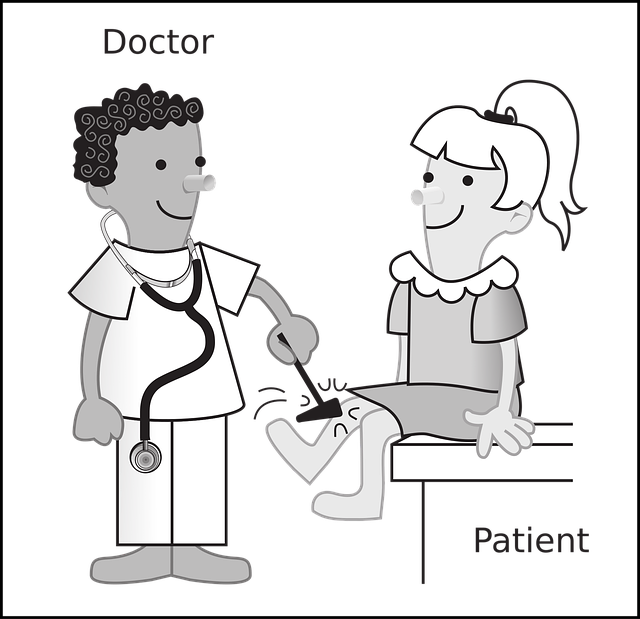Cloud storage is transforming medical data management through telehealth IT solutions, offering secure and efficient access to patient records from anywhere with an internet connection. This technology enhances decision-making, improves patient care, and streamlines administrative tasks, marking a significant advancement in digital healthcare. Robust security measures, including encryption, multi-factor authentication, and HIPAA compliance, are crucial to protect sensitive data. Integrating cloud-based systems enables seamless sharing of patient information, improving decision-making, coordinated management, diagnosis, treatment, satisfaction, and automation in healthcare practices, particularly in the growing telehealth landscape.
Cloud-based medical data storage and retrieval have revolutionized healthcare, especially with the rise of telehealth. This article explores how cloud storage is transforming medical data management, highlighting the benefits of efficient telehealth IT solutions for quick and seamless retrieval. We delve into security concerns and best practices to ensure patient data privacy. Additionally, we discuss integrating cloud data to enhance patient care and access, positioning it as a game-changer in modern healthcare.
Cloud Storage: Revolutionizing Medical Data Management
Cloud storage has emerged as a game-changer in the medical data management landscape, offering a secure and efficient solution for healthcare providers. In today’s digital era, where telehealth IT solutions are on the rise, having reliable access to patient records is more critical than ever. Cloud-based systems provide an innovative approach by storing medical data remotely, allowing practitioners to retrieve information promptly from any location with an internet connection.
This technology revolutionizes how healthcare facilities manage and share sensitive patient data. With its vast storage capacity and advanced security features, cloud storage ensures that records are safe, protected, and easily retrievable when needed. As a result, medical professionals can enhance their decision-making processes, improve patient care, and streamline administrative tasks, ultimately benefiting both patients and healthcare providers alike.
Benefits of Telehealth IT Solutions for Efficient Retrieval
Telehealth IT solutions have revolutionized medical data management, offering numerous benefits for efficient retrieval. One of the key advantages is enhanced accessibility. Cloud-based systems allow healthcare providers to access patient records from any location with an internet connection, enabling remote consultations and faster decision-making. This is particularly valuable in emergency situations or for specialists located far from patients’ geographical positions.
Additionally, these solutions streamline data retrieval processes through sophisticated search functions and organized digital archives. Medical professionals can quickly locate relevant patient history, test results, and treatment plans, improving the accuracy and efficiency of care delivery. The ability to retrieve information promptly contributes to better clinical outcomes and enhances the overall patient experience.
Security Concerns and Best Practices in Cloud-Based Medical Records
When it comes to cloud-based medical data storage, security is a paramount concern. Healthcare providers must ensure that patient records are protected from unauthorized access and potential cyber threats. Given the sensitive nature of medical information, telehealth IT solutions should employ robust encryption protocols, multi-factor authentication, and role-based access controls to safeguard data. Regular security audits and penetration testing can help identify vulnerabilities and ensure compliance with industry standards like HIPAA (Health Insurance Portability and Accountability Act).
Best practices involve implementing secure network architecture, monitoring for suspicious activities, and training staff on cybersecurity best practices. Additionally, backup strategies should be in place to ensure data recovery in case of a breach or system failure. By integrating these measures, healthcare organizations can leverage the benefits of cloud storage while maintaining patient privacy and data integrity, fostering trust among both providers and patients in telehealth IT solutions.
Integrating Cloud Data: Enhancing Patient Care and Access
Integrating cloud-based data storage and retrieval systems into healthcare practices is transforming patient care and access to medical records. This innovative approach, facilitated by advanced telehealth IT solutions, enables seamless sharing of patient information among healthcare providers, regardless of their physical location. Physicians, nurses, and specialists can quickly access comprehensive medical histories, lab results, and imaging reports, leading to more informed decision-making and coordinated patient management.
The benefits are numerous: faster diagnosis, improved treatment plans, and enhanced patient satisfaction. Cloud data integration also streamlines administrative tasks by automating record-keeping and reducing the need for manual data transfer. This efficiency gains are particularly valuable in the rapidly evolving telehealth landscape, where remote consultations and virtual care are becoming the norm.
Cloud-based medical data storage and retrieval, powered by innovative telehealth IT solutions, offer a revolutionary approach to managing patient information. By leveraging secure cloud infrastructure, healthcare providers can streamline data access, enhance patient care, and improve overall operational efficiency. While security concerns are valid, implementing best practices ensures the protection of sensitive medical records. As this technology continues to evolve, its potential to transform healthcare delivery is undeniable, promising a future where patient data is readily accessible, securely managed, and integrated across diverse healthcare settings.
